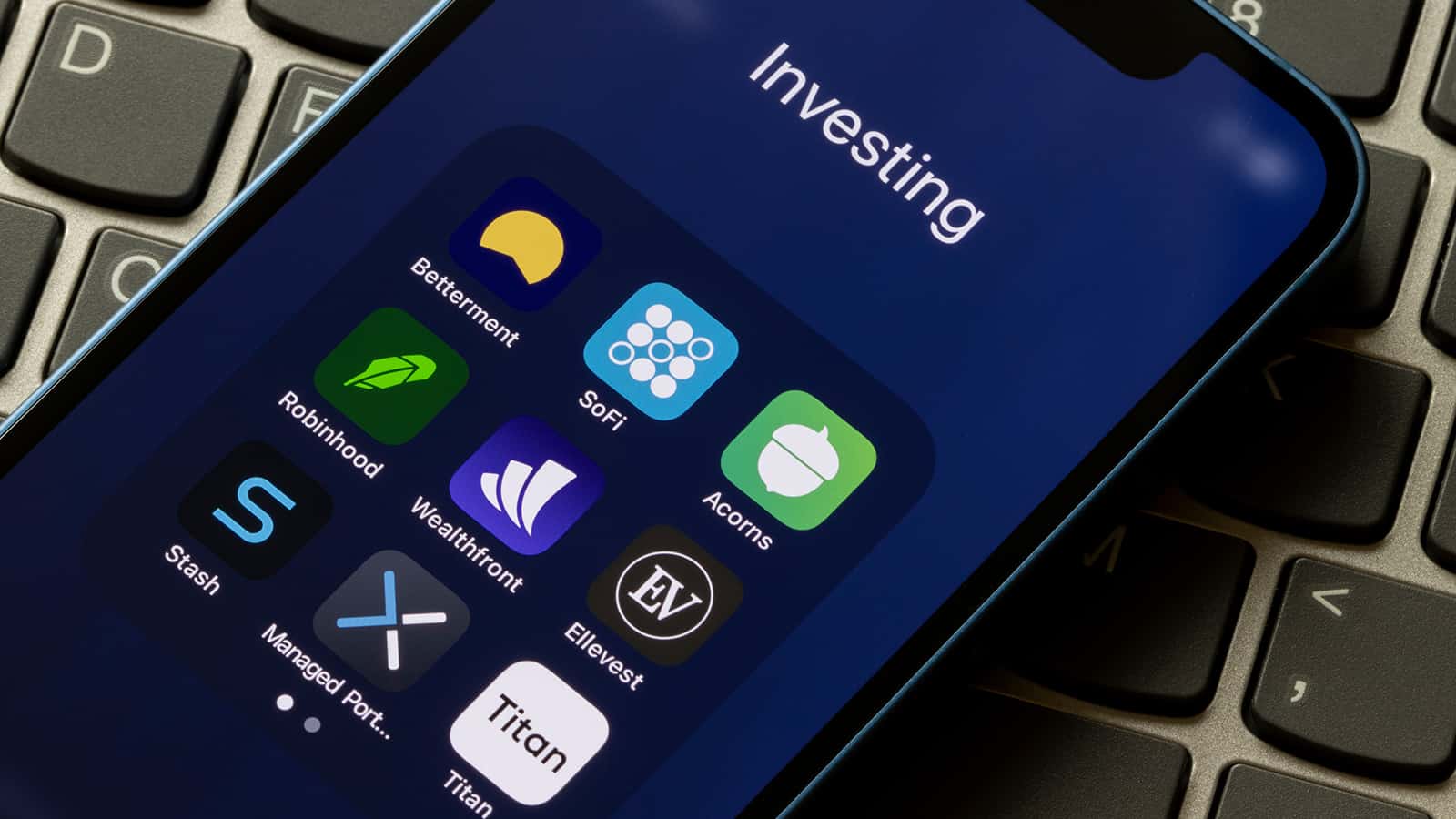We all make mistakes, especially when it comes to managing our money. Despite our desire to stay on track, it’s easy for most to be guilty of an expensive misstep. If we’re not careful, we can develop bad money habits that can keep us from achieving our financial goals. These are 15 bad habits to avoid if you want to elevate your finances.
Table of Contents
Using a Credit Card to Pay Your Bills

This bad money habit solves an immediate problem (paying a bill you owe) with a worse one (getting trapped in a cycle of debt). What happens when you can’t pay off the credit card bill in full next month?
Your debt grows larger thanks to sky high interest rates.
Instead, call your biller and see if you can negotiate a partial payment or get an extension on the bill due date.
Taking Out a Payday Loan

Whether you go to a Payday Loan store, or use a Buy Now Pay Later (BNPL) app, you’re only making things worse for yourself.
The problem of not having enough to pay your bills by payday will still be there next month. Only now, you’ll have a bigger problem – more of your paycheck will be going to the Payday Loan shark.
Instead, address the underlying issue.
Spending More Than You Earn

Spending more than you earn is the best way to create a crisis with your personal finances. Not only does it create debt, but it also impacts all other areas of your life.
This can create a nasty cycle that’s difficult to break. It is possible to achieve success though. You can cut expenses, earn more, or a combination of the two. Once you get your head above water, look for ways to grow your savings to help avoid future indebtedness.
Regularly Using a Cash Advance App

We’ve all been there. Payday is a week away and you have purchases you need to make. So, you turn to a paycheck advance app to get the funds you need.
They promise the ability to get what you need and all you need to do is pay it back in up to four installments. It sounds great, but it can create a cycle that worsens your situation. Furthermore, you may run into fees, and worse, if you mistreat them.
Not Having an Emergency Fund

Emergencies happen all the time. Your car breaks down, or you need to replace your water heater. If you don’t have an emergency fund, that expense is likely going on a credit card.
Recent reports indicate nearly 60 percent of Americans don’t have at least $1,000 in savings. Saving doesn’t have to be painful in the beginning, but it does have to start. Otherwise, you’re living life on the brink. Find a way to save $50 a month, then increase it in a few months.
Thinking Debt is Normal

Debt doesn’t have to be normal, so don’t live that way. With credit card interest rates over 20 percent, the interest can make it impossible to live the life you want.
Look for ways to pay more than the minimum amount due. This will accelerate your debt-free date and allow you to work towards your goals sooner.
Spending Too Much on Food

Food waste costs real money. Feeding America reports nearly 40 percent of all food in America is wasted.
You can reduce this by shopping with a meal plan and a list. Eating leftovers is another terrific way to reduce waste and save money.
Paying Bank Fees

In 2023 you should not be paying a bank to hold your cash. Unfortunately, many people still pay for banking fees. Reports show the average monthly maintenance fee is at least $15 a month.
Add that to other common fees and your bank is slowly but surely eroding your cash. Find a bank that won’t charge you fees so you keep more of your cash to work for you.
Ignoring Investing

Saving money is a fantastic way to improve your financial health. However, putting cash in savings account is only hald of the process. You also want to invest money in the stock market, or other investments, to grow your wealth.
Your 401(k) is a fantastic option for this. Reports indicate nearly 20 percent of Americans don’t save enough to receive a match in their retirement plan at work. If that’s you, it’s time to save at least enough to receive the full match. It is free money after all. Then, look for other options, such as a Roth IRA to continue to grow your wealth.
Not Reading Your Bills

When was the last time you read through a bill you received? It’s easy to glance at what you owe and make the payment without reading through your bills.
This can cost you money. The service provider may be charging you a fee that they shouldn’t be, or something worse. Reading through your bills is the best way to ensure you know what you’re liable for and a vital way to not pay for an expense you didn’t incur.
Avoiding Career Planning

Your career significantly impacts your livelihood. Take responsibility for your career path, because no one else will. If you’re unhappy in your job, research possible side businesses you can start with your skills.
Don’t overlook negotiating with your boss for higher pay. That additional income directly impacts your finances and future plans.
Never Having Fun

Not enjoying the benefits of what money provides is a big mistake. Paying off debt and saving is important, but so is having fun.
Set aside some of what you’ve earned and use it on something that’s completely frivolous. You’ve worked hard, so enjoy some of the benefits.
Not Paying Yourself First

If you don’t view yourself as a bill, you’re doing it all wrong. Paying yourself first is the key to achieving financial stability. Avoiding it only hurts your future self.
It’s not difficult to pay yourself first. Simply create a transfer to your savings, to occur after each paycheck. It’s best to do this with a high-yield savings account, such as CIT Bank, that pays a competitive rate.
Pair that with automated 401(k) transfers and the work is done.
Living Without a Budget

Many people don’t budget because they think it’s difficult or that it won’t let them have freedom. Both are wrong. A budget gives you the freedom to spend on what matters to you. It also gives every dollar a purpose.
It’s not difficult to create a budget. You can use a free app to start tracking your spending, and use that information to identify where to cut. Bonus points if you ask a friend to keep you accountable.
Ignoring Your Credit Score

The credit scoring system isn’t perfect, but that doesn’t mean you should forget it. A good credit score can save you loads of money, especially when it comes to taking out a loan.
Make payments on time and don’t use too much credit. Following those simple tips will go a long way to help improve your credit.
I Need Money Now!

Are you in a cash rut and need money quickly? Don’t take out a loan. Here are 19 ways you can get cash today to make ends meet.
How to Multiply Your Money

Growing your money is essential to financial independence. Not all investment opportunities are equal though. With a little wise judgment you can put your investments in a better place.
101 Ways to Make Money on the Side

There are countless side hustle ideas you can pursue. Not everyone will be a good fit for you. Here’s an exhaustive list of options to make extra money on the side.
Ways to Make Money on the Side
9 Best Investing Apps For Beginners

If you’re new to investing, it can be difficult to know where to start. Thankfully, there are apps for that. Here are nine of the best investing apps for beginners.
9 Best Investing Apps For Beginners
How to Build an Emergency Fund

Having a fully-funded emergency fund is the gold standard of personal finance. However, it’s not always easy to achieve. Follow these steps to start and grow one that gives you peace of mind.
How to Build an Emergency Fund
I’m John Schmoll, a former stockbroker, MBA-grad, published finance writer, and founder of Frugal Rules.
As a veteran of the financial services industry, I’ve worked as a mutual fund administrator, banker, and stockbroker and was Series 7 and 63-licensed, but I left all that behind in 2012 to help people learn how to manage their money.
My goal is to help you gain the knowledge you need to become financially independent with personally-tested financial tools and money-saving solutions.






Leave a Reply